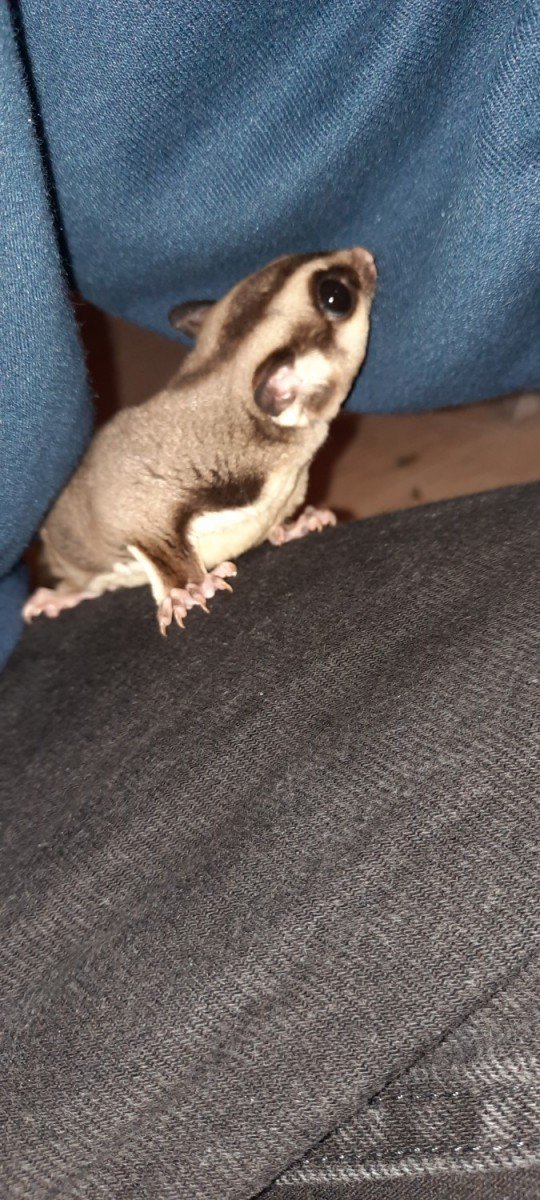Do Sugar Gliders Need A Lot Of Attention
Do sugar gliders need a lot of attention?
Yes, sugar gliders do require a considerable amount of attention and care. These small marsupials are social creatures and thrive in environments where they receive daily interaction and enrichment. If you’re considering getting a sugar glider as a pet, it’s important to understand their needs and be prepared to dedicate time and effort to their well-being.
Why do sugar gliders need attention?
Sugar gliders are highly social animals that form strong bonds with their human caregivers as well as other gliders. In the wild, they live in large family groups and engage in constant social interaction, grooming, and play. When they are kept as pets, they need companionship and stimulation to prevent boredom and loneliness.
Interacting with your sugar glider regularly helps to build a trusting relationship and establish their bond with you. Without sufficient attention, they can become stressed, depressed, and even develop health issues.

How much attention do sugar gliders need?
As nocturnal animals, sugar gliders are most active during the evening and nighttime. They require at least 1-2 hours of supervised out-of-cage playtime every evening to simulate their natural behavior and meet their activity needs. During this time, you can let them explore, climb, glide, and interact with their environment.
In addition to playtime, sugar gliders also need daily handling and social interaction. This can include cuddling, gentle grooming, and allowing them to ride on your shoulder or in a bonding pouch. Regular interaction ensures that they feel safe and loved, promoting their overall well-being.
It’s important to note that sugar gliders are highly intelligent and curious animals. They thrive on mental stimulation, so providing them with interactive toys, puzzles, and activities is vital to prevent boredom and promote their mental health.
The importance of bonding with your sugar glider
Building a strong bond with your sugar glider is not only essential for their happiness but also for their overall health. By spending quality time with your glider, you’ll be able to observe any changes in behavior, detect potential health issues early on, and provide timely care.
Bonding also helps sugar gliders feel more comfortable and secure in their surroundings. It can prevent them from becoming stressed, which can lead to health problems such as self-mutilation or reduced appetite.
Remember, sugar gliders are highly social animals, and they thrive in environments where they receive attention, affection, and mental stimulation on a daily basis. If you’re unable to commit to providing the necessary time and attention, a sugar glider may not be the right pet for you.
Frequently Asked Questions
Q: Can sugar gliders be left alone during the day?
A: While sugar gliders are most active at night, they should not be left alone for extended periods during the day. They need daily interaction and mental stimulation to maintain their well-being.
Q: Can sugar gliders be kept as solo pets?
A: Sugar gliders are highly social animals and thrive when kept in pairs or small groups. It’s not recommended to keep them as solitary pets as this can lead to loneliness and behavioral issues.
Q: How can I bond with my sugar glider?
A: Bonding with a sugar glider takes time and patience. Start by spending time near their cage, talking softly to them, and offering treats. Gradually introduce handling and supervised playtime, allowing them to build trust at their own pace.
Q: Can sugar gliders be trained?
A: Yes, sugar gliders can be trained using positive reinforcement techniques. They can learn various tricks and commands, but it’s important to remember that training should be done in a gentle and consistent manner.
Q: What happens if I don’t provide enough attention to my sugar glider?
A: Lack of attention and social interaction can lead to stress, depression, and health issues in sugar gliders. They may exhibit behaviors such as self-mutilation, decreased appetite, or withdrawal from social interaction.
Final Thoughts
Sugar gliders are incredibly social creatures that thrive on attention, companionship, and mental stimulation. If you’re considering getting a sugar glider as a pet, it’s important to understand their needs and be prepared to dedicate time and effort to their well-being.
By providing daily attention, handling, and supervised playtime, you can ensure that your sugar glider remains happy, healthy, and bonded with you. Remember, owning a sugar glider is a long-term commitment, and maintaining their well-being should be a top priority.
If you’re unsure about your ability to provide the necessary attention and care, it may be best to reconsider getting a sugar glider as a pet. However, if you’re ready to embark on an exciting and rewarding journey with these remarkable creatures, your efforts will be rewarded with a loving and loyal companion.







